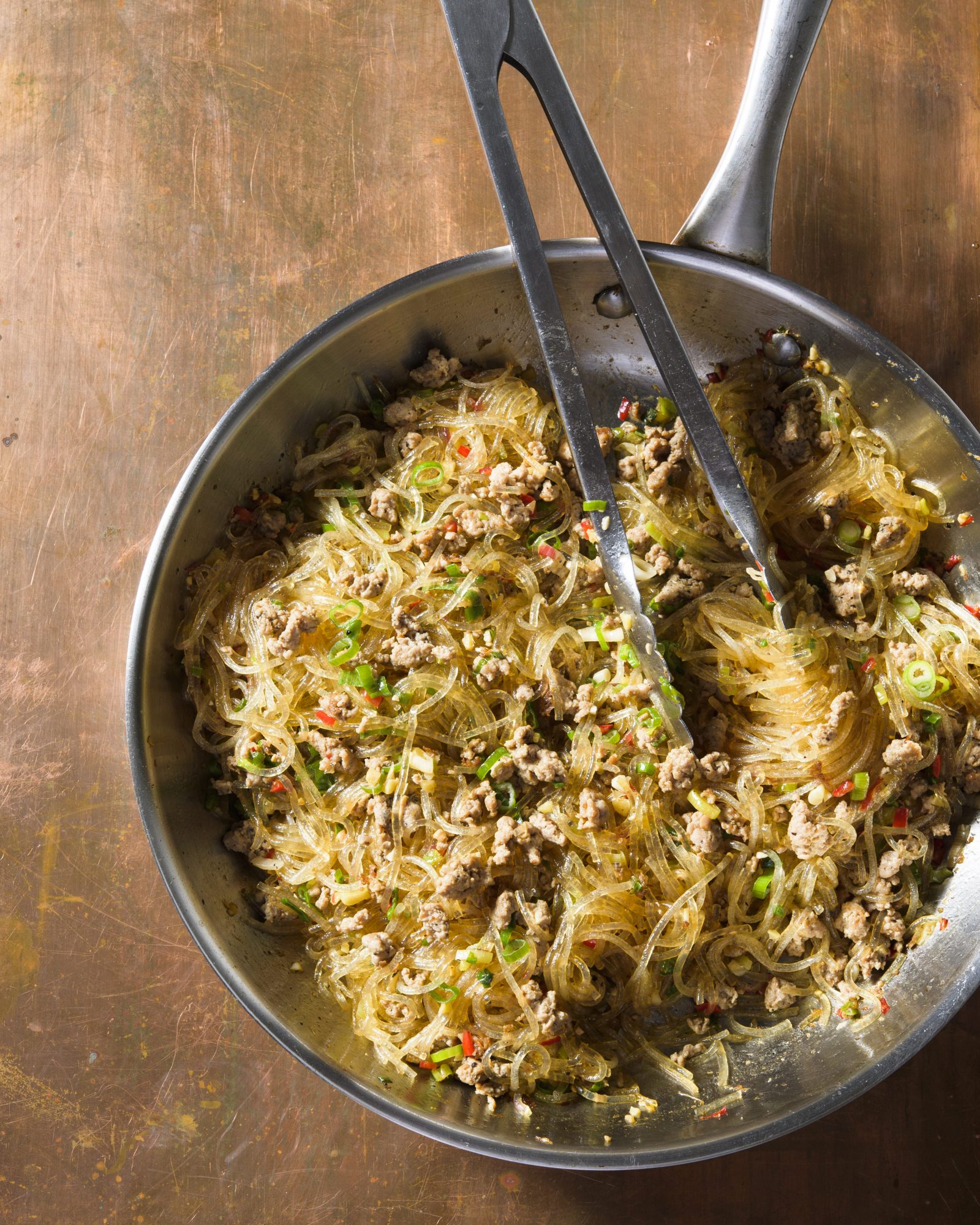Your email address is required to begin the subscription process. We will use it for customer service and other communications from Milk Street. You can unsubscribe from receiving our emails at any time.

Spicy Glass Noodles with Ground Pork
The peculiar name of this Sichuan classic—Ants Climbing a Tree—is a direct translation from the Mandarin. The little bits of pork clinging to the noodles are said to resemble ants climbing a tree. Thin and wiry, glass noodles go by a few different names, including cellophane noodles, bean threads and sai fun. We soak them in boiling water until softened but not fully tender, and they finish cooking to a bouncy, slippery texture in the skillet as they absorb the added chicken broth. The finished dish is quite dry, rather than saucy, the noodles having taken in much of the moisture and lots of flavor. Chinese chili bean paste called toban djan (sometimes spelled doubanjiang) provides spicy heat as well as deep savoriness and umami. Look for it sold in jars in the international aisle of the supermarket or in an Asian grocery store. If you are unable to source toban djan, 2 teaspoons red miso plus 3 teaspoons chili-garlic sauce is a decent approximation. If you like, drizzle the noodles with sesame oil before serving and offer steamed greens alongside to complete the meal.
4
Servings
Don’t forget to reserve the scallion whites and greens separately. The whites are cooked with the ginger and garlic; the greens are tossed in just before serving.
30 minutes
Ingredients
-
4
ounces glass noodles (see headnote)
-
Boiling water, for soaking the noodles
Directions
-
01Place the noodles in a medium heatproof bowl and pour in boiling water to cover. Let stand until the noodles are pliable, about 15 minutes, then drain in a colander and rinse under running cold water. Using kitchen shears, snip the noodles in several places to cut them into shorter lengths. In a small bowl, stir together the pork, the 2 teaspoons soy sauce and ½ teaspoon pepper.
Pardon the interruption
You need to be a Milk Street Digital Member to see the full recipe
JOIN MILK STREET DIGITAL & PRINT
12 WEEKS FOR JUST $1
and get access to all of our recipes and articles online, as well as in print.
GET DIGITAL & PRINT


